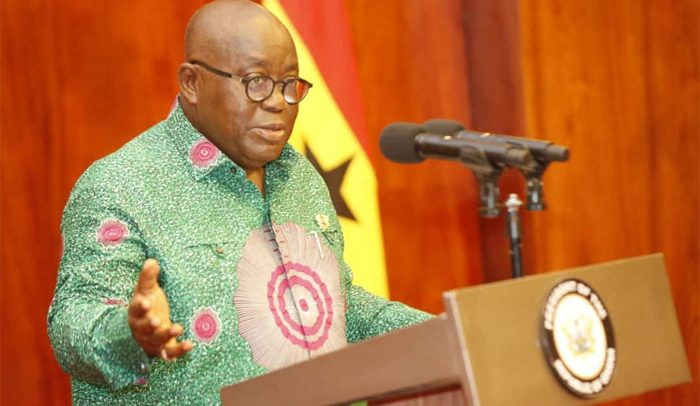Professor Frimpong-Boateng, the Minister of Environment, Science Technology and Innovation (MESTI), has promised to change the face of the famous Agbogbloshie Market in Accra soon.
This follows government’s decision to construct and operationalize an electronic waste (e-waste) recycling facility at the place to meet environmental, social, health and industrial standards as part of efforts to implement the Hazardous and Electronic Waste Control and Management Law (Act 971, 2016), which was passed in February this year.
Speaking at the launch of the national ‘integrated e-waste management programme’ at the Jubilee House in Accra on Wednesday, the celebrated heart surgeon cum politician said “the construction of the recycling plant will begin in October this year and Agbogbloshie as we know it will not be the same again.”
Project
An agreement signed with SGS as the external service provider and Debsther Klean Recycle, a local Ghanaian company, would lead to the establishment of a state-of-the-art facility for the recycling of electrical and electronic waste as provided under Section 31 of Act 917.
Government, through MESTI, has signed agreements with two German institutions to manage e-waste.
The first agreement has been signed with Messrs. KFW, a financial institution, to build an e-waste holding centre that would store all e-waste to be purchased from dealers at Agbogbloshie.
The second is with GIZ and intended to promote the individual and organizational skills of people directly involved in the recycling and disposal processes and their associations, as well as promoting the health and wellbeing of people living in the area.
Beginning October this year, government would start the collection of what is going to be known as ‘advance eco fee’ on all electronic devices imported into the country.
President Akufo-Addo, on his part, said the recycling facility would not be lone entity.
He said “it has a component of the project that will support the establishment of a network of collection centres to provide continued supply of raw materials to sustain the operations of the facility.”
President Akufo-Addo indicated that the construction of an integrated e-waste recycling facility at Agbogbloshie would commence in October this year.
With an estimated 40 to 50 million tons of e-waste generated annually, and Ghana serving as the final destination for e-waste, the president noted that e-waste is a major global problem and one of the top environmental challenges of the 21st century.
Used pieces of electronic and electrical equipment imported into the country continue to be the major source of electronic waste, as many have not been tested for functionality in contravention of the Bamako Convention, Basel Convention and EU e-waste Shipment Regulations.
President Akufo-Addo noted that with used equipment not covered by existing international or regional conventions, government passed the Hazardous and Electronic Waste Control and Management Act, Act 917 (2016) to deal with the problem.
Benefits
This component, he said, would create over 22,000 self-sustaining jobs for the youth of the country.
President Akufo-Addo touched on the establishment of a fund that would support key trade associations such as Ghana Union of Traders Association, AGI, media and support research in academic institutions.
He urged scrap dealers across the country to halt the burning of waste to stop the pollution of the environment and commended Prof Frimpong-Boateng for providing effective leadership.

By Charles Takyi-Boadu, Presidential Correspondent


